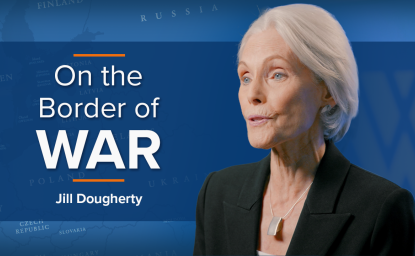Relationships, Negotiation Help Define Arab Governance
Anthropologist and Wilson Center Public Policy Scholar Lawrence Rosen discusses cultural norms that help shape Arab politics and why it's important to pay attention to them.
Anthropologist and Wilson Center Public Policy Scholar Lawrence Rosen discusses cultural norms that help shape Arab politics and why it's important to pay attention to them.
When King Hassan II died seven years ago, people all across Morocco waited in long lines at post offices to mail letters to his successor. They mailed their letters return-requested in an effort to establish personal relations with their new king. This true account gets at the crux of Muslim lifestyles, politics, and culture.
Arab society is built upon personal linkages, said anthropologist and Wilson Center Public Policy Scholar Lawrence Rosen. "They're a people of traits and ties," he said. They're a hospitable people who constantly negotiate and ingratiate. In the souk (the marketplace), people haggle over items and arrange their social life much the same way. "They bargain over anything, including relationships," said Rosen. Property does not define the person but identifies others' relationships to that object.
In fact, an Arab merchant might get offended if a customer pays him each time he makes a purchase, viewing it as a betrayal of trust. Debt is personal, binding, and commonplace, said Rosen.
Understanding this cultural routine helps explain the workings of Arab politics, which are built upon a series of connections. "It's an intensely personal political system," Rosen said. "You're in a web of indebtedness and have expectations in return."
Rosen disagrees with the argument that deposing illegitimate leaders in the Arab world will give rise to legitimate ones. In Arab society, legitimacy comes from one's network of affiliations and power is a function of those networks. Even the hated and feared leaders used the bonds of indebtedness to rise in politics, which provide the check on power. If a leader displaces him, the new leader is considered legitimate because other relationships put him there.
"An institution in a disembodied entity misses the point," said Rosen. Networks, not the formalities of institutions, define a person's scope of power. "It's vital to be a person who moves around and forges ties everywhere," said Rosen. "You're known for whom you're obligated to," and subordinates are integral in this structure.
The Arab world defines corruption differently than in the West. Whereas democracy is a government with limited powers, a Muslim might suggest bribery too is a form of government with a limit on power, said Rosen. "It's considered corrupt not to share items and valuables with those whom people are bonded to," Rosen said. "Yet their kind of corruption has a moral ring to it as you share money and possessions with those dependent on you."
This tribal ethos, in which people build ties of dependence to gain power, is their way of life. Race, wealth or national origin does not make one morally superior. "You can be poor, then rich, then hung the next day," said Rosen. "No institutional list of powers of office can describe what Arab politics is about. There are rules, but it's the way they play it."
Rosen warned, "If we don't pay attention, the systemic repercussions may be undesired. If we ignore the Arab sense of how a person is identified, we get terrorism."


